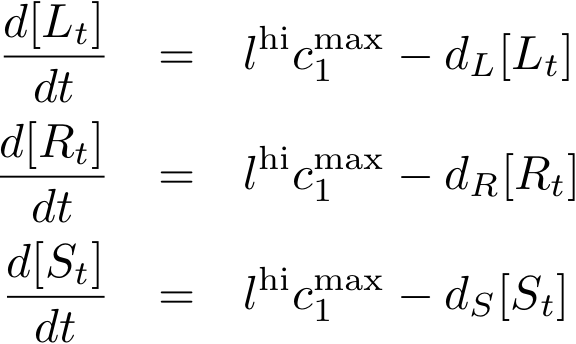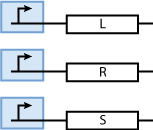ETHZ/Engineering
From 2007.igem.org

.:: Introduction ::.
In order to understand if it is possible to create the learning system that we wanted, we had to run some initial simulations, to see if we could reach the steady states that we wanted. After creating a basic framework on which to work on, we refined the parameters by searching the available literatures. In the next, we are presented the coupled differential equations that model our system, their parameters and the values that we picked, the results of our simulations, and lastly, we provide our references.
.:: System Model ::.
Based on [1], we modeled the biological system with differential equations. According to what presented in the Biology Perspective, our system is composed of three subsystems: (1) A subsystem of constitutively produced proteins, (2) The learning part, and (3) The reporting subsystem. The first two subsystems interact, and thus, they should be considered together. The third subsystem has no feedback with the other two, as it is only used for producing the appropriate fluorescent proteins.
The subsystem with the constitutively produced proteins serves as a regulatory system, and can be modeled with three decoupled partial differential equations:
.:: Simulations ::.
.:: References ::.
.:: To Do ::.

